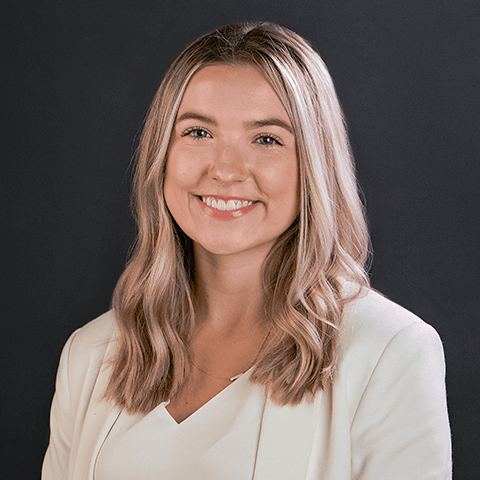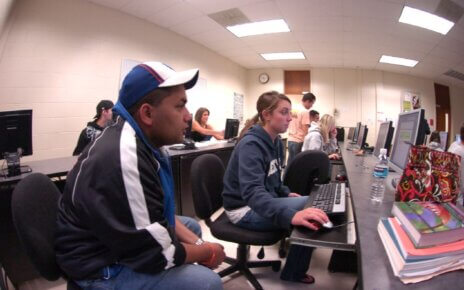Monmouth University’s Public Relations Student Society of America (PRSSA) and Shadow PR Firm hosted a pitching workshop with Karalyn Hoover on Wednesday, Feb 2.
Hoover graduated from Monmouth University in 2020 and now works as an Account Executive at Max Borges Agency, a public relations firm that specializes in consumer technology. She served as the co-president of PRSSA in 2020 and returned to give advice on how to pitch and secure clients.
“I was a part of PRSSA since I was a freshman at Monmouth. I really clung to it, it’s super valuable and definitely teaches you a lot of relevant skills for the industry,” said Hoover.
She then explained the importance of pitching and how it can be used to benefit clients, describing it as “one of the most crucial skills that you’ll ever take away from PR” and “something that will always be in your back pocket.”
“PR is an ever evolving industry, but pitching is something that isn’t going to die away,” Hoover continued. “The way you do things might differ from agency to agency, but it’s important to learn those skills. You have to understand how to get the results that you want for your client. Getting wins for your client is going to get wins for you, which always feels good.”
This is often easier said than done, especially when dealing with lesser-known clients who may not get as much “organic” coverage as their larger competitors. Building media relationships allows PR professionals to establish connections with journalists that may come in handy when searching for coverage for more difficult clients.
“Everyone wants people to know about their brand. Brand awareness is pretty much the whole reason PR exists. You can’t get that without pitching because that’s how journalists learn about your product and share it with their readers,” explained Hoover.
Although pitching varies from agency to agency, Hoover noted that Max Borges Agency divides it into three main categories: product pitching, embargo pitching, and brand pitching.
Leah Frain, President of PRSSA, currently works as an intern at Max Borges Agency and has dealt primarily with product pitching for various types of clients, including lifestyle, technology, fitness, and wellness.
“Max Borges Agency has taught me a lot about pitching,” said Frain. “It’s a lot harder to land placements than one might think. It’s not only important to have strong writing skills, but you also have to be an outgoing and personable PR professional in order to form media relationships, which are an integral part of media relations.”
There are several key components of any successful pitch, which Hoover described in detail throughout the workshop. A PR professional’s main goal is to make a product or brand appeal to journalists so that they want to cover it, and to make it easy for them to do so by giving them all of the information they could need and making it easily accessible.
Hoover emphasized the importance of targeting the right journalist for the job and only pitching products that are relevant to their line of work. Otherwise, they won’t cover you and the time spent reaching out to them was wasted. In order to get the desired outcome, a PR professional needs to know who to reach out to and how to do it in an attention-grabbing way.
“The subject line of any email is crucial,” explained Hoover. “It’s going to make or break your pitch because when media is going through their inbox, you want something that will catch their attention.”
She then went on to describe the structure of the body of the email, which should begin with the most important information and gradually flow into some of the less significant details and reiterations. Important content includes images, product links, pricing, and other crucial information that a journalist would need to know about the product in order to decide if it’s worth their time and attention. The email should also include a call to action that states the purpose of your message and tells the journalist what you want from them.
“You don’t want to make the journalist work to find your product. The more time that it takes them to search and research your product, the less likely they are to seriously consider it because they don’t have the time of day,” said Hoover. “They don’t even have the time to open your emails and respond a lot of the time, their inboxes are usually flooding. You want to keep it short and sweet, but you also want to make sure it’s super easy and right to the point.”
Pitching is an integral part of any career in the field of PR. Although it looks different from agency to agency, Hoover noted that the same basic concepts apply to all pitching strategies and should be utilized in any PR internship or job.



